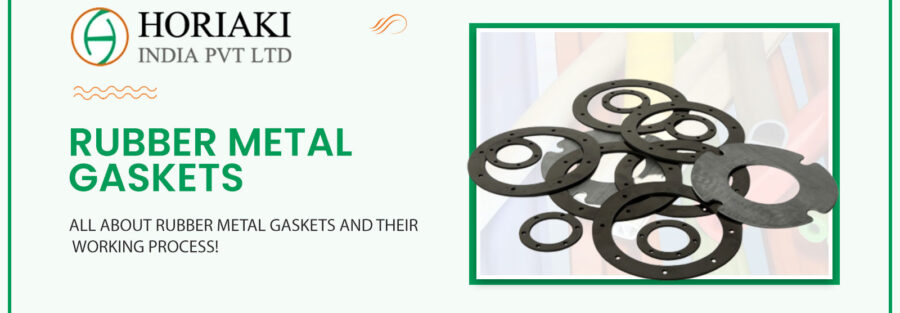All About Rubber Metal Gaskets and Their Working Process!
From the moment we start our day, we interact with countless objects that rely on an unsung hero of engineering: the gasket. These humble seals form a crucial barrier between components, preventing leaks, ensuring smooth operation, and protecting sensitive parts from external elements. Today, we’ll discuss rubber metal gaskets, exploring their functionality, applications, and why they might be the perfect solution for your sealing needs.
Why Do You Need a Gasket?
Imagine your car without gaskets. Every oil line, engine seal, and even the spark plug would leak precious fluids and gases, rendering the vehicle inoperable. Gaskets play a vital role in numerous applications across various industries:
- Industrial machinery: Sealing high-pressure fluids and gases in pumps, valves, and pipelines.
- Automotive & Aerospace Sector: Ensuring a tight seal for engine oil, transmission fluid, and other critical components.
- Electronics Sector: Protecting sensitive equipment from dust, moisture, and EMI interference.
- Food & Beverage Industry: Maintaining hygiene and preventing contamination in processing equipment.
- Appliances: Creating a watertight seal in washing machines, dishwashers, and coffee makers.
While various materials can be used for gaskets, rubber often reigns supreme due to its unique properties.
What are Rubber Metal Gaskets?
Rubber metal gaskets are flexible seals typically made from various rubber compounds, offering several advantages:
- Excellent elasticity: Conforms to uneven surfaces, creating a tighter seal.
- Chemical resistance: Many rubber types resist specific chemicals and oils, crucial in various industries.
- Vibration dampening: Absorbs vibrations, protecting components and reducing noise.
- Wide temperature range: Certain rubber formulations can withstand extreme temperatures.
- Cost-effective: Generally more affordable than some other gasket materials.
However, no single material is perfect. Rubber can degrade over time due to exposure to extreme temperatures, harsh chemicals, or ozone. This is where rubber metal gaskets come in.
How Does a Rubber Gasket Work?
The magic of a rubber gasket lies in its ability to deform and fill the gap between two surfaces. When compressed, the rubber forms a tight seal, preventing leaks and ensuring proper operation. The specific mechanism depends on the gasket type:
- O-rings: Circular seals with a rounded cross-section, ideal for static applications.
- Flat gaskets: Sheet-like gaskets conforming to various shapes and flange designs.
- Rubber gaskets: A combination of an elastomeric core (often rubber) and a metal carrier, offering superior strength and temperature resistance.
Rubber gaskets excel in demanding applications. The metal carrier reinforces the gasket, preventing blow-out under high pressure, while the rubber core maintains flexibility and sealing capabilities. This unique combination makes them ideal for:
- High-pressure environments: Chemical plants, oil & gas pipelines, and hydraulic systems.
- Extreme temperatures: Engines, boilers, and other applications experiencing significant thermal fluctuations.
- Harsh chemical exposure: Resistant to aggressive chemicals and oils found in industrial settings.
Other Types of Gaskets Beyond Rubber
While rubber holds its ground in many applications, other materials offer specific advantages:
- Metal gaskets: Offer superior strength and temperature resistance but lack flexibility.
- Cork gaskets: Excellent for sealing irregular surfaces and absorbing vibrations.
- PTFE (Teflon) gaskets: Chemically inert and withstand extreme temperatures but can be expensive.
Choosing the right gasket material depends on your specific application, considering factors like pressure, temperature, chemical compatibility, and budget.
Conclusion
Rubber metal gaskets, and their rubber metal counterparts, play a critical role in ensuring the smooth operation of countless machines and devices. Understanding their functionality and different types empowers you to make informed decisions when choosing the right seal for your specific needs.
We hope this blog provided valuable insights into the world of rubber metal gaskets. If you have any further questions or specific application needs, feel free to consult with a gasket expert to find the perfect sealing solution for your unique requirements.


